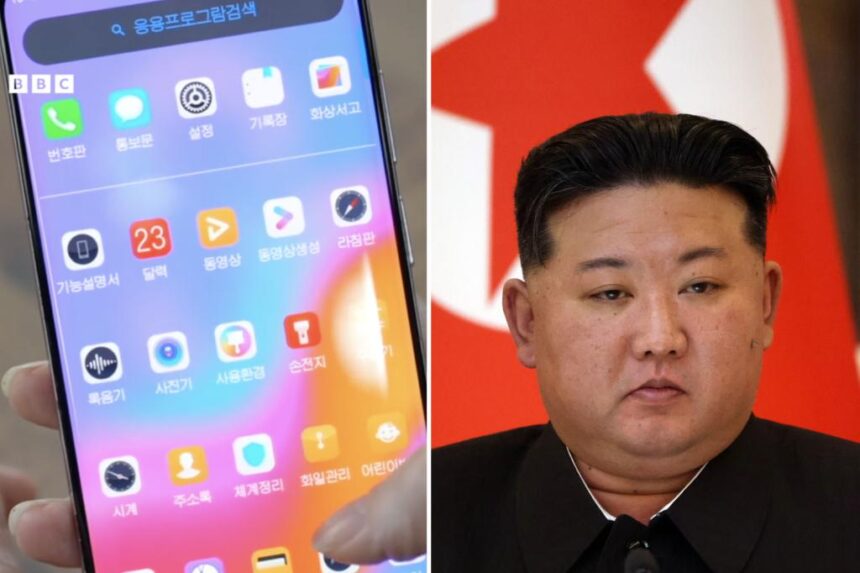North Korea’s Tight Grip on Technology Revealed Through Smuggled Smartphone
A recent investigation by the BBC has shed light on the extreme levels of control exerted by the North Korean regime over its people, as evidenced by a smartphone smuggled out of the country. The seemingly ordinary device was found to have several Orwellian features, such as issuing warnings against using South Korean slang and covertly taking screenshots every five minutes.
The phone, which outwardly appeared no different from a regular smartphone, auto-corrected “South Korea” to read “puppet state” and replaced the term “oppa” with “comrade,” a more politically acceptable alternative. In addition, a warning would flash up on the screen if the user attempted to use the term “oppa” in the context of a boyfriend, emphasizing that it could only be used for older siblings.
These disturbing revelations come as part of a broader crackdown on modern technology by Kim Jong Un’s authoritarian regime. Smartphones have become a tool for indoctrination, with the regime closely monitoring and controlling the flow of information through these devices. According to Martyn Williams, an expert in North Korean technology, the regime is gaining the upper hand in the information war.
In a further display of control, using South Korean phrases or speaking with a South Korean accent has been designated a state crime by Kim Jong Un. Youth crackdown squads patrol the streets, monitoring the behavior of young North Koreans and enforcing strict adherence to the regime’s rules.
One North Korean defector, Kang Gyuri, shared her experience of being reprimanded for styling her hair and dressing like a South Korean. She recounted how goon squads would confiscate her phone and scrutinize her text messages for any forbidden terms. Kang eventually escaped to South Korea, where she now resides.
The North Korean regime’s tightening grip on technology is a response to efforts by the South Korean government to spread subversive messages into the country. Despite strict controls on outside media, efforts to smuggle in USB sticks and micro-SD cards containing South Korean content continue, funded in part by the US government.
For dissidents like Kang Gyuri, exposure to external information through illicit radio broadcasts and South Korean dramas was a catalyst for their desire to escape the oppressive regime. Kang expressed feeling suffocated by the state’s restrictions and a realization that life in North Korea was far from normal.
The revelations about the smuggled smartphone highlight the extent to which the North Korean regime goes to control its population and limit their exposure to outside influences. As technology continues to play a central role in disseminating information, the battle for control over information in North Korea intensifies.








